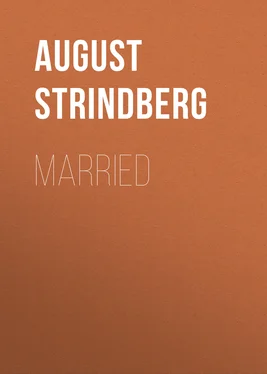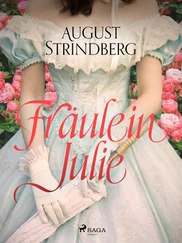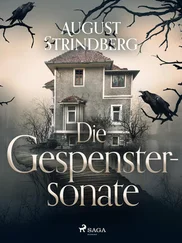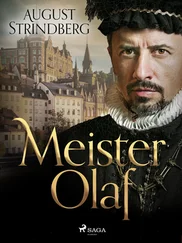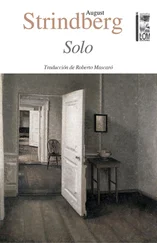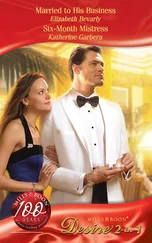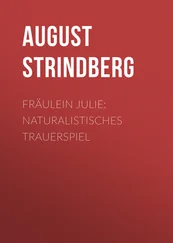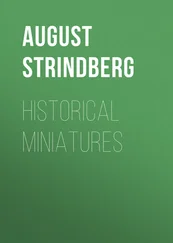August Strindberg - Married
Здесь есть возможность читать онлайн «August Strindberg - Married» — ознакомительный отрывок электронной книги совершенно бесплатно, а после прочтения отрывка купить полную версию. В некоторых случаях можно слушать аудио, скачать через торрент в формате fb2 и присутствует краткое содержание. Жанр: foreign_prose, foreign_antique, на английском языке. Описание произведения, (предисловие) а так же отзывы посетителей доступны на портале библиотеки ЛибКат.
- Название:Married
- Автор:
- Жанр:
- Год:неизвестен
- ISBN:нет данных
- Рейтинг книги:3 / 5. Голосов: 1
-
Избранное:Добавить в избранное
- Отзывы:
-
Ваша оценка:
- 60
- 1
- 2
- 3
- 4
- 5
Married: краткое содержание, описание и аннотация
Предлагаем к чтению аннотацию, описание, краткое содержание или предисловие (зависит от того, что написал сам автор книги «Married»). Если вы не нашли необходимую информацию о книге — напишите в комментариях, мы постараемся отыскать её.
Married — читать онлайн ознакомительный отрывок
Ниже представлен текст книги, разбитый по страницам. Система сохранения места последней прочитанной страницы, позволяет с удобством читать онлайн бесплатно книгу «Married», без необходимости каждый раз заново искать на чём Вы остановились. Поставьте закладку, и сможете в любой момент перейти на страницу, на которой закончили чтение.
Интервал:
Закладка:
One evening—the minister scorned no trick likely to produce an effect on his hard-headed pupils—they were having a lesson in the choir. It was in January. Two gas jets lighted up the choir, illuminating and distorting the marble figures on the altar. The whole of the large church with its two barrel-vaults, which crossed one another, lay in semi-darkness. In the background the shining organ pipes faintly reflected the gas flames; above it the angels blowing their trumpets to summon the sleepers before the judgment seat of their maker, looked merely like sinister, threatening human figures above life size; the cloisters were lost in complete darkness.
The minister had explained the seventh commandment. He had spoken of immorality between married and unmarried people. He could not explain to his pupils what immorality between husband and wife meant, although he was a married man himself; but on the subject of immorality in all its other aspects he was well-informed. He went on to the subject of self-abuse. As he pronounced the word a rustling sound passed through the rows of young men; they stared at him, with white cheeks and hollow eyes, as if a phantom had appeared in their midst. As long as he kept to the tortures of hell fire, they remained fairly indifferent, but when he took up a book and read to them accounts of youths who had died at the age of twenty-five of consumption of the spine, they collapsed in their seats, and felt as if the floor were giving way beneath them! He told them the story of a young boy who was committed to an asylum at the age of twelve, and died at the age of fourteen, having found peace in the faith of his Redeemer. They saw before their shrinking eyes a hundred corpses, washed and shrouded. “There is but one remedy against this evil,” went on the minister, “the precious wounds of Christ.” But how this remedy was to be used against sexual precocity, he did not tell them. He admonished them not to go to dances, to shun theatres and gaming-houses, and above all things, to avoid women; that is to say to act in exact contradiction to their inclinations. That this vice contradicts and utterly confounds he pronouncement of the community that a man is not mature until he is twenty-one, was passed over in silence. Whether it could be prevented by early marriages (supposing a means of providing food for all instead of banquets for a few could be found) remained an open question. The final issue was that one should throw oneself into the arms of Christ, that is to say, go to church, and leave the care of temporal things to the upper classes.
After this admonishment the minister requested the first five on the first form to stay behind. He wished to speak to them in private. The first five looked as if they had been sentenced to death. Their chests contracted; they breathed with difficulty, and a careful observer might have noticed that their hair had risen an inch at the roots and lay over their skulls in damp strands like the hair of a corpse. Their eyes stared from their blanched sockets like two round glass bullets set in leather, motionless, not knowing whether to face the question with a bold front, or hide behind an impudent lie.
After the prayer the hymn of Christ’s wounds was sung; to-night it sounded like the singing of consumptives; every now and then it died away altogether, or was interrupted by a dry cough, like the cough of a man who is dying of thirst. Then they began to file out. One of the five attempted to steal away, but the minister called him back.
It was a terrible moment. Theodore who sat on the first form was one of the five. He felt sick at heart. Not because he was guilty of the offence indicated, but because in his heart he considered it an insult to a man thus to have to lay bare the most secret places of his soul.
The other four sat down, as far from each other as they could. The belt-maker’s apprentice, who was one of them, tried to make a joke, but the words refused to come. They saw themselves confronted by the police-court, the prison, the hospital and, in the background, the asylum. They did not know what was going to happen, but they felt instinctively that a species of scourging awaited them. Their only comfort in their distressing situation was the fact that he , Mr. Theodore, was one of them. It was not clear to them why that fact should be a comfort, but they knew intuitively that no evil would happen to the son of a professor.
“Come along, Wennerstroem,” said the minister, after he had lighted the gas in the vestry.
Wennerstroem went and the door closed behind him. The four remained seated on their forms, vainly trying to discover a comfortable position for their limbs.
After a while Wennerstroem returned, with red eyes, trembling with excitement; he immediately went down the corridor and out into the night.
When he stood in the churchyard which lay silent under a heavy cover of snow, he recapitulated all that had happened in the vestry. The minister had asked him whether he had sinned? No, he had not. Did he have dreams? Yes! He was told that dreams were equally sinful, because they proved that the heart was wicked, and God looked at the heart. “He trieth the heart and reins, and on the last day he will judge every one of us for every sinful thought, and dreams are thoughts. Christ has said: Give me your heart, my son! Go to Him! Pray, pray, pray! Whatsoever is chaste, whatsoever is pure, whatsoever is lovely—that is He. The alpha and the omega, life and happiness. Chasten the flesh and be strong in prayer. Go in the name of the Lord and sin no more!”
He felt indignant, but he was also crushed. In vain did he struggle to throw off his depression, he had not been taught sufficient common-sense at school to use it as a weapon against this Jesuitical sophistry. It was true, his knowledge of psychology enabled him to modify the statement that dreams are thoughts; dreams are fancies, he mused, creations of the imagination; but God has no regard for words! Logic taught him that there was something unnatural in his premature desires. He could not marry at the age of sixteen, since he was unable to support a wife; but why he was unable to support a wife, although he felt himself to be a man, was a problem which he could not solve. However anxious he might be to get married, the laws of society which are made by the upper classes and protected by bayonets, would prevent him. Consequently nature must have been sinned against in some way, for a man was mature long before he was able to earn a living. It must be degeneracy. His imagination must be degenerate; it was for him to purify it by prayer and sacrifice.
When he arrived home, he found his father and sisters at supper. He was ashamed to sit down with them, for he felt degraded. His father asked him, as usual, whether the date of the confirmation had been fixed. Theodore did not know. He touched no food, pretending that he was not well; the truth was that he did not dare to eat any supper. He went into his bedroom and read an essay by Schartau which the minister had lent him. The subject was the vanity of reason. And here, just here, where all his hopes of arriving at a clear understanding were centred, the light failed. Reason which he had dared to hope would some day guide him out of the darkness into the light, reason, too, was sin; the greatest of all sins, for it questioned God’s very existence, tried to understand what was not meant to be understood. Why it was not meant to be understood, was not explained; probably it was because if it had been understood the fraud would have been discovered.
He rebelled no longer, but surrendered himself. Before going to bed he read two Morning Voices from Arndt, recited the Creed, the Lord’s Prayer and the Blessing. He felt very hungry; a fact which he realised with a certain spiteful pleasure, for it seemed to him that his enemy was suffering.
Читать дальшеИнтервал:
Закладка:
Похожие книги на «Married»
Представляем Вашему вниманию похожие книги на «Married» списком для выбора. Мы отобрали схожую по названию и смыслу литературу в надежде предоставить читателям больше вариантов отыскать новые, интересные, ещё непрочитанные произведения.
Обсуждение, отзывы о книге «Married» и просто собственные мнения читателей. Оставьте ваши комментарии, напишите, что Вы думаете о произведении, его смысле или главных героях. Укажите что конкретно понравилось, а что нет, и почему Вы так считаете.
